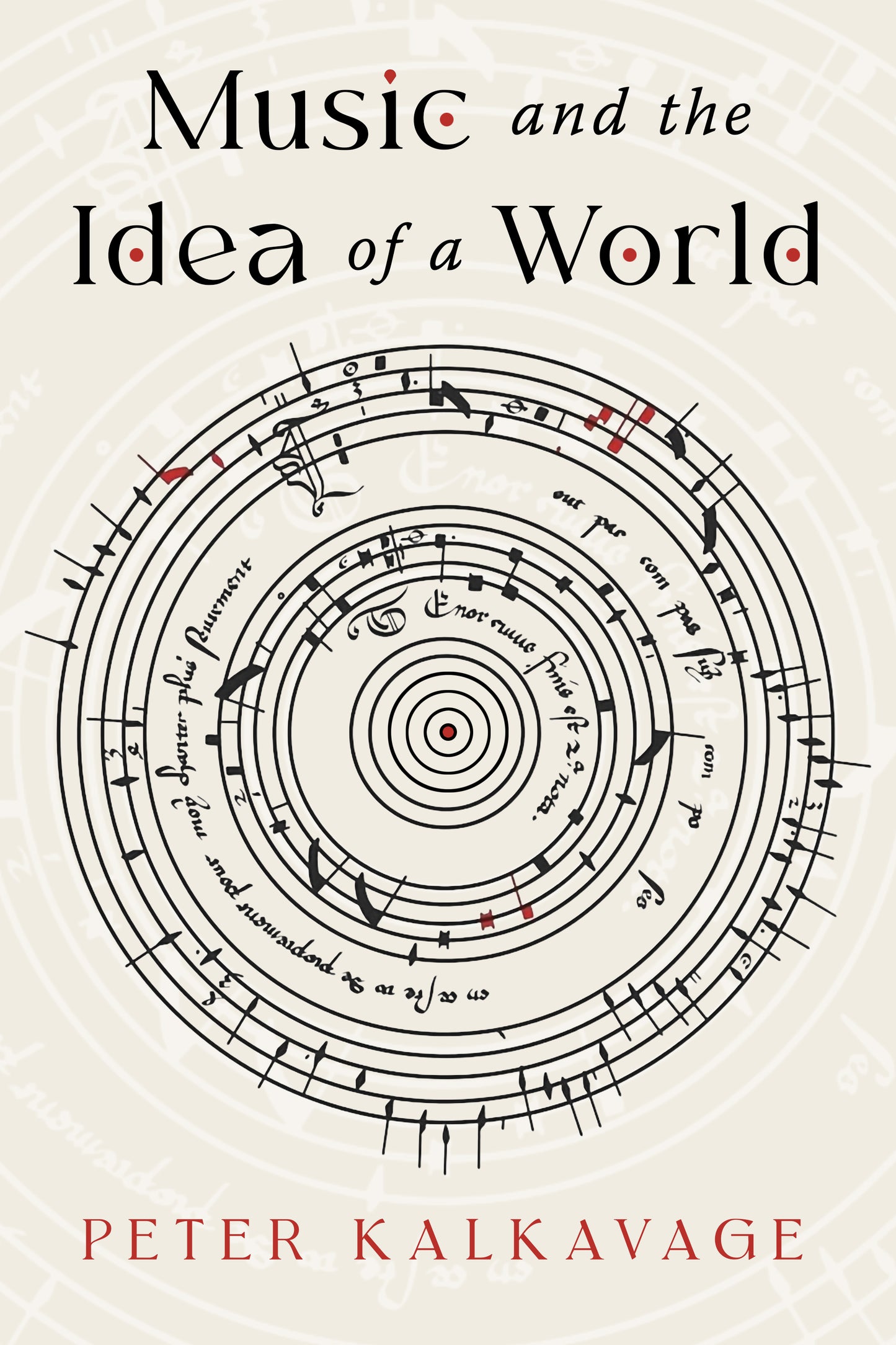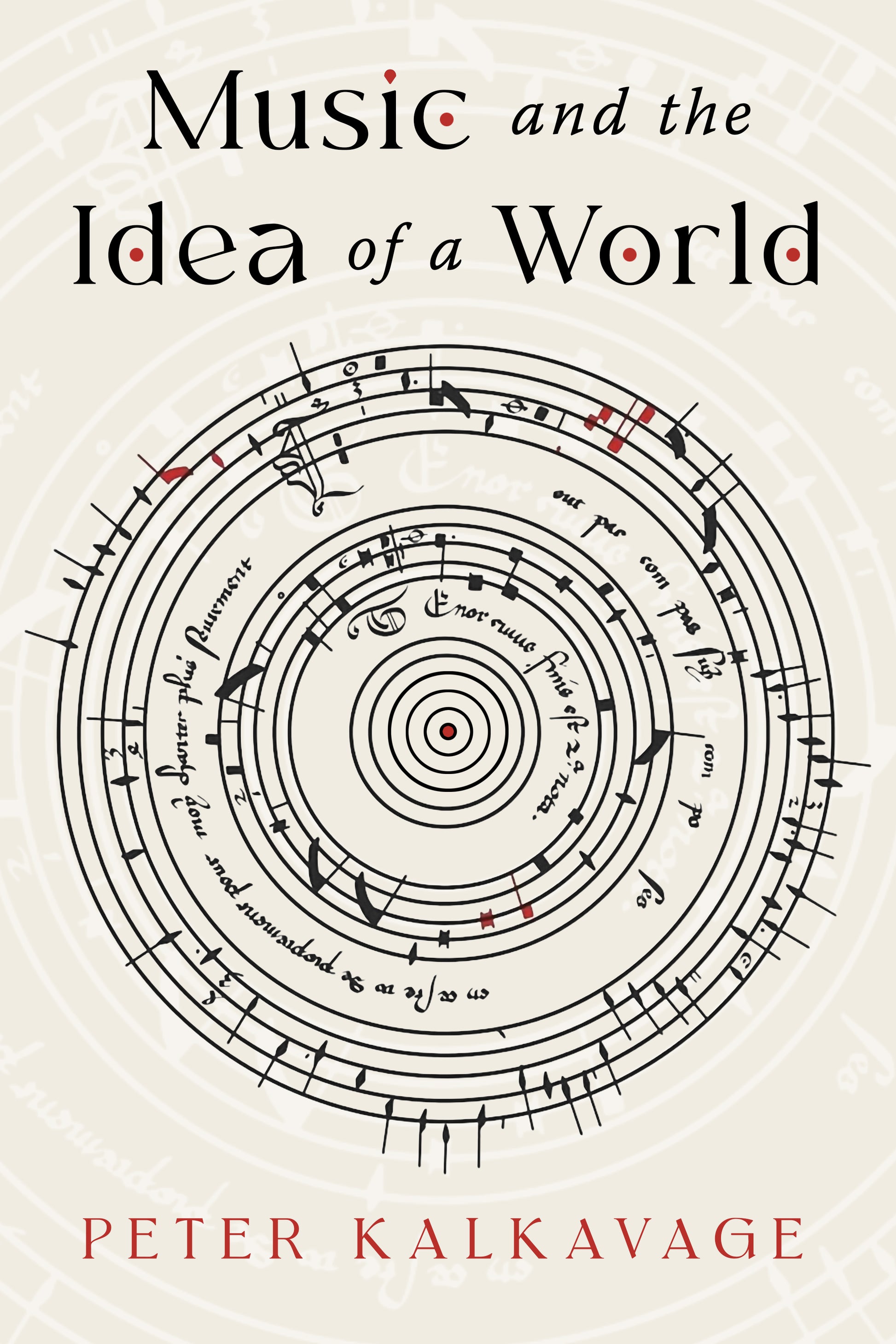Music and the Idea of a World
Music and the Idea of a World
Peter Kalkavage
Regular price
$ 19.96 USD
Regular price
$ 24.95 USD
Sale price
$ 19.96 USD
Unit price
per
Couldn't load pickup availability
325-page paperback / 6" x 9" / ISBN 9781589881860
Publication Date: 3/19/2024
"In this deeply felt and well-researched meditation, Kalkavage finds the special bond that exists between the world and the power of music."
—Booklist
Music and the Idea of a World explores the bond between music and world by reflecting on great musical compositions and works by great thinkers from antiquity to the present. World, here, has several meanings. It is the natural world or cosmos, the inner world of feeling and thought, world history, and the world of tones (the musical universe). The book is intended for philosophic-minded readers who are fascinated by music and music lovers who enjoy thinking about the philosophic questions that music raises.
The seven-chapter journey begins with a contrast between the cosmologies of Plato and Schopenhauer (followed by a discussion of Palestrina’s music and the world of the Bible). It then proceeds to chapters on music and nature in Victor Zuckerkandl’s Sound and Symbol, a love song from Bach’s St. Matthew Passion, a love song from Mozart’s Magic Flute, Wagner’s Tristan and Isolde in relation to Schopenhauer’s cosmology of the will, twelve-tone music as the image of totalitarianism in Thomas Mann’s Doctor Faustus, and the world of the inner life in Francis Poulenc’s Dialogues of the Carmelites.
MORE PRAISE FOR MUSIC AND THE IDEA OF A WORLD:
“Many people write about the meaning of music, but few can do it as well as Peter Kalkavage does in this marvelous, winsome, and often hauntingly beautiful book. We all know that the language of music overflows with meaning, profound meaning, both in the way it gives an expressive shape to the flow of our inner life, and in the way it models the transcendent grandeur of the cosmos, and even gives us a glimpse of the eternal. But the language of music resists translation into words. Kalkavage is equal to the challenge, however, and takes us on a deep dive into the philosophical dimensions of music, through a series of connected essays that demonstrate again and again the ways in which music is intimately connected to the most important questions we wrestle with, about the nature of time, space, and the human condition. It is a book of great learning, but one also brimming over with enthusiasm and love for its subject, a combination that readers will find irresistible.”
—Dr. Wilfred M. McClay, Professor of History, Hillsdale College
“This book is a compilation of treasures from Peter Kalkavage, one of the most perceptive music theoreticians and practitioners. He is deeply grounded in first principles, knows the Greek classics and, most importantly, knows modernity in light of them. The relationship between music and the world was one of the most important to the ancient Greeks. Have we lost the enriching idea that the universe is musically constituted, as they thought? This book delves deeply into what music is and what it does. Is it its own world, or is it the world? Kalkavage lays before the reader various answers, ancient and modern. This is a profound work that needs to be read and then meditated upon.”
—Robert R. Reilly, author of Surprised by Beauty: A Listener's Guide to the Recovery of Modern Music
“Music is the language of the cosmos and of the human soul, and inevitably reflects—and inculcates—a vision of reality as a whole. The ancients and medievals honored it as one of the seven liberal arts, keys for opening the doors to wisdom. Peter Kalkavage patiently and beautifully unfolds neglected but profound truths about this mysterious art, as he shares with readers the fruit of decades of teaching the Great Books and leading students into the mysteries of tones, rhythms, and harmonies. Illustrating his themes with aptly-chosen composers and works, Kalkavage treats his subject with an eloquence and authority that make Music and the Idea of a World a sheer joy to read.”
—Dr. Peter A. Kwasniewski, author of Good Music, Sacred Music, and Silence
“In this lovely book, Peter Kalkavage has given us some flowers and fruit from the seed sown by Plato in his Timaeus, cultivated by composers like Bach and Wagner, and wondered at by thinkers who attended to Cosmos and Soul. The prose is lucid and sensitive to roots, the details of analysis, for such a short book, surprisingly accessible to intelligent readers, and the whole book food for heart and mind. Read it. It will nourish you.”
—Dr. Richard Ferrier, Thomas Aquinas College
Peter Kalkavage is the author of The Logic of Desire: An Introduction to Hegel’s Phenomenology of Spirit (Paul Dry Books, 2007). He has translated the Timaeus and co-translated the Sophist, Phaedo, Statesman, Symposium, and Meno—all for Hackett Publishing Co. Kalkavage has been teaching at St. John’s College in Annapolis, Maryland for over forty-five years, and for the last thirty years, he has been the director of The St. John’s Chorus, which regularly performs sacred music from the Renaissance to the present.
Publication Date: 3/19/2024
"In this deeply felt and well-researched meditation, Kalkavage finds the special bond that exists between the world and the power of music."
—Booklist
Music and the Idea of a World explores the bond between music and world by reflecting on great musical compositions and works by great thinkers from antiquity to the present. World, here, has several meanings. It is the natural world or cosmos, the inner world of feeling and thought, world history, and the world of tones (the musical universe). The book is intended for philosophic-minded readers who are fascinated by music and music lovers who enjoy thinking about the philosophic questions that music raises.
The seven-chapter journey begins with a contrast between the cosmologies of Plato and Schopenhauer (followed by a discussion of Palestrina’s music and the world of the Bible). It then proceeds to chapters on music and nature in Victor Zuckerkandl’s Sound and Symbol, a love song from Bach’s St. Matthew Passion, a love song from Mozart’s Magic Flute, Wagner’s Tristan and Isolde in relation to Schopenhauer’s cosmology of the will, twelve-tone music as the image of totalitarianism in Thomas Mann’s Doctor Faustus, and the world of the inner life in Francis Poulenc’s Dialogues of the Carmelites.
MORE PRAISE FOR MUSIC AND THE IDEA OF A WORLD:
“Many people write about the meaning of music, but few can do it as well as Peter Kalkavage does in this marvelous, winsome, and often hauntingly beautiful book. We all know that the language of music overflows with meaning, profound meaning, both in the way it gives an expressive shape to the flow of our inner life, and in the way it models the transcendent grandeur of the cosmos, and even gives us a glimpse of the eternal. But the language of music resists translation into words. Kalkavage is equal to the challenge, however, and takes us on a deep dive into the philosophical dimensions of music, through a series of connected essays that demonstrate again and again the ways in which music is intimately connected to the most important questions we wrestle with, about the nature of time, space, and the human condition. It is a book of great learning, but one also brimming over with enthusiasm and love for its subject, a combination that readers will find irresistible.”
—Dr. Wilfred M. McClay, Professor of History, Hillsdale College
“This book is a compilation of treasures from Peter Kalkavage, one of the most perceptive music theoreticians and practitioners. He is deeply grounded in first principles, knows the Greek classics and, most importantly, knows modernity in light of them. The relationship between music and the world was one of the most important to the ancient Greeks. Have we lost the enriching idea that the universe is musically constituted, as they thought? This book delves deeply into what music is and what it does. Is it its own world, or is it the world? Kalkavage lays before the reader various answers, ancient and modern. This is a profound work that needs to be read and then meditated upon.”
—Robert R. Reilly, author of Surprised by Beauty: A Listener's Guide to the Recovery of Modern Music
“Music is the language of the cosmos and of the human soul, and inevitably reflects—and inculcates—a vision of reality as a whole. The ancients and medievals honored it as one of the seven liberal arts, keys for opening the doors to wisdom. Peter Kalkavage patiently and beautifully unfolds neglected but profound truths about this mysterious art, as he shares with readers the fruit of decades of teaching the Great Books and leading students into the mysteries of tones, rhythms, and harmonies. Illustrating his themes with aptly-chosen composers and works, Kalkavage treats his subject with an eloquence and authority that make Music and the Idea of a World a sheer joy to read.”
—Dr. Peter A. Kwasniewski, author of Good Music, Sacred Music, and Silence
“In this lovely book, Peter Kalkavage has given us some flowers and fruit from the seed sown by Plato in his Timaeus, cultivated by composers like Bach and Wagner, and wondered at by thinkers who attended to Cosmos and Soul. The prose is lucid and sensitive to roots, the details of analysis, for such a short book, surprisingly accessible to intelligent readers, and the whole book food for heart and mind. Read it. It will nourish you.”
—Dr. Richard Ferrier, Thomas Aquinas College
Peter Kalkavage is the author of The Logic of Desire: An Introduction to Hegel’s Phenomenology of Spirit (Paul Dry Books, 2007). He has translated the Timaeus and co-translated the Sophist, Phaedo, Statesman, Symposium, and Meno—all for Hackett Publishing Co. Kalkavage has been teaching at St. John’s College in Annapolis, Maryland for over forty-five years, and for the last thirty years, he has been the director of The St. John’s Chorus, which regularly performs sacred music from the Renaissance to the present.


